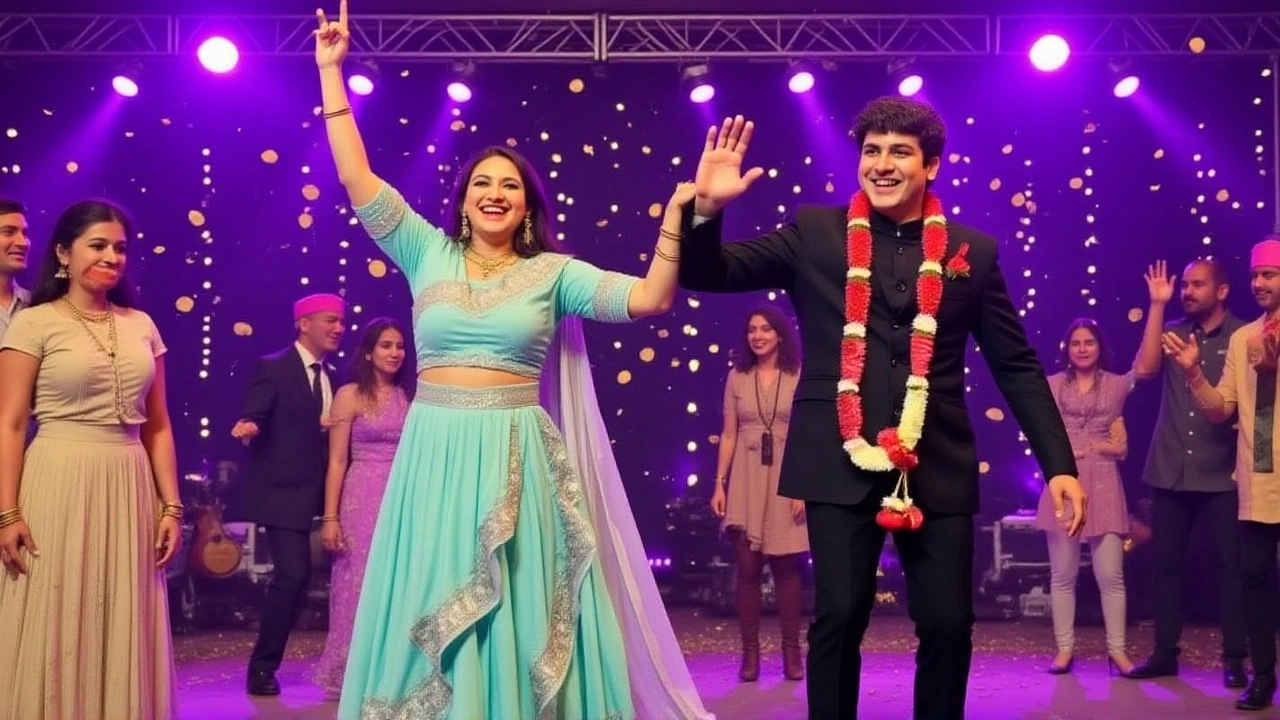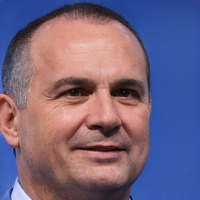When Smriti Ranjan Mandhana stepped out for her wedding day on November 23, 2025, she didn’t walk down the aisle—she walked into a hospital in Sangli. The Indian women’s cricket team’s star opener, known for her aggressive left-handed batting and calm leadership, made a choice that surprised no one who knows her: family comes before festivities. Her father’s sudden heart attack-like symptoms that morning halted the wedding ceremony before it even began. And then, the twist: the next day, her fiancé, Palash Muchhal, the music composer and brother of playback singer Palak Muchhal, was also rushed to a private hospital in Sangli with a viral infection and severe acidity. The wedding, once a glittering spectacle of music, dance, and cricketing legends, became a quiet story of resilience.
Family First: The Decision That Defined the Moment
Mandhana, 29, didn’t hesitate. When news broke that her father was experiencing elevated blood pressure and possible cardiac distress, she immediately withdrew from the wedding rituals. No fanfare, no press release—just a quiet, firm decision made in a hospital corridor. “She didn’t ask for advice,” said a close family friend who spoke on condition of anonymity. “She just said, ‘I’m not leaving until he’s stable.’” That’s the kind of person Mandhana is. In a world where celebrity weddings are curated for Instagram, she chose to be present—not perform. The wedding had been months in the making. Haldi and Mehendi ceremonies were completed with full pomp: Mandhana in a lavender-and-purple ombre saree, Palash in ivory sherwani, and Palak Muchhal and her husband, composer Mithoon, dancing beside them. A video of the couple grooving to ‘Tenu Leke Main Jawanga’ from Salam-E-Ishq had already gone viral, with over 12 million views by November 23. Indian cricketers like Harmanpreet Kaur and Jemimah Rodrigues had performed at the sangeet. It was, by all accounts, a dream celebration—until it wasn’t.Two Hospitalizations, One Family Under Stress
On November 23, Mandhana’s father was admitted to a local Sangli hospital with symptoms resembling a cardiac event. Medical staff confirmed his blood pressure was dangerously high. “Efforts are on to lower it,” said a hospital source. “If the situation exacerbates, we will have to do angiography.” The phrase hung in the air: if. Not when. Just if. That uncertainty was the real weight. Then came November 24. Palash Muchhal, reportedly fine the day before, suddenly felt unwell—nausea, dizziness, chest tightness. He was taken to a private clinic in Sangli. NDTV reported he was treated for a viral infection and acute acidity and discharged the same day. “His condition was not serious,” the report stated. But in the context of the day’s events, “not serious” didn’t feel like relief. It felt like another ripple in a storm no one saw coming.
The Cultural Weight of a Wedding in Sangli
Sangli, a city of 2.2 million in southwestern Maharashtra, is where Mandhana grew up. Her family’s roots run deep here. Weddings aren’t just events—they’re community rituals. Neighbors bring homemade sweets. Schoolteachers show up. Local cricket clubs organize mini-tournaments. For a hometown hero like Mandhana, the wedding was meant to be a celebration of belonging. Now, it’s a pause. The venue? Still booked. The invites? Still printed. The cake? Still frozen in a freezer, waiting. The Economic Times confirmed the postponement is indefinite. No new date. No backup plan. “All decisions rest on the father’s recovery,” said a family spokesperson. That’s not just a logistical delay—it’s an emotional reset. In Indian families, the father’s presence at a daughter’s wedding isn’t symbolic. It’s sacred. Mandhana didn’t just postpone a party. She honored a cultural contract older than cricket.Privacy in the Age of Virality
What’s striking isn’t just the medical emergencies—it’s how Mandhana responded to the spotlight. Within hours of the hospitalizations, she removed all wedding-related posts from Instagram and Twitter. No updates. No reassurances. No “thank you for your prayers.” That silence spoke louder than any statement. In an era where even funerals are livestreamed, her choice to disappear was radical. Social media reacted with a mix of admiration and concern. “She’s a role model,” tweeted one fan. “Not because she hits sixes, but because she chooses humanity over headlines.” Others questioned the timing: “Why publicize the wedding at all if privacy was the goal?” But the answer’s simple: the family never expected this. The sangeet wasn’t a PR stunt—it was a joyous gathering. The tragedy was never planned.
What’s Next? A Family Waiting, Not Planning
There’s no timeline. No tentative date in December. No “we’ll reschedule after the holidays.” The family is living hour by hour. Palash Muchhal is home, resting. Mandhana’s father remains under observation. The medical team is monitoring him closely. Meanwhile, the cricket world has paused. The BCCI hasn’t commented. The Indian team’s next match—scheduled for December 5—isn’t the focus right now. For Mandhana, this isn’t about the next innings. It’s about the next breath her father takes. That’s the real scoreboard.Frequently Asked Questions
Why did Smriti Mandhana postpone her wedding after her father’s hospitalization?
Smriti Mandhana postponed the wedding because, in Indian familial and cultural norms, a father’s presence at his daughter’s wedding is considered essential—not ceremonial, but sacred. Her decision was rooted in deep personal values, not public image. Even as the event was fully prepared, she chose to prioritize her father’s health over tradition, showing that for her, family overrides spectacle.
Is Palash Muchhal’s hospitalization related to his father-in-law’s condition?
No, there’s no medical link between the two incidents. Palash Muchhal was hospitalized for a viral infection and severe acidity, conditions unrelated to cardiac issues. While his hospitalization added emotional strain, medical sources confirmed his condition was non-serious and he was discharged the same day. The coincidence of timing, however, intensified the family’s stress during an already fragile moment.
What impact does this have on Smriti Mandhana’s cricket career?
So far, there’s no indication it will affect her career. Mandhana has previously taken breaks for personal reasons, including mental health, and the BCCI has always supported her. The Indian women’s team is currently in a transition phase ahead of the 2026 World Cup, and her leadership remains vital. Her absence from social media and public appearances is temporary, and her focus remains on family, not contracts.
Why did Mandhana remove her wedding-related social media posts?
Her removal of posts was a deliberate act of reclaiming privacy. After the viral sangeet video and widespread media attention, the sudden hospitalizations turned a personal milestone into public spectacle. By deleting the content, Mandhana signaled that this was no longer a celebration—it was a crisis. It was a quiet protest against the expectation that even grief must be curated for audiences.
Will the wedding happen at all?
The families have not ruled it out, but no date has been discussed. All decisions are contingent on the full recovery of Mandhana’s father, whose condition remains unstable. Even if he improves, the emotional toll may delay any plans. For now, the wedding isn’t on the calendar—it’s on hold, waiting for health, not hype.
How has the public reacted to the postponement?
Public reaction has been overwhelmingly supportive. While some early comments questioned the timing of the wedding’s publicity, the dominant sentiment shifted to admiration for Mandhana’s choice. Hashtags like #FamilyOverFestivities and #SmritiStrong trended across India. Even critics who once mocked celebrity weddings now praise her for choosing humanity over headlines.

